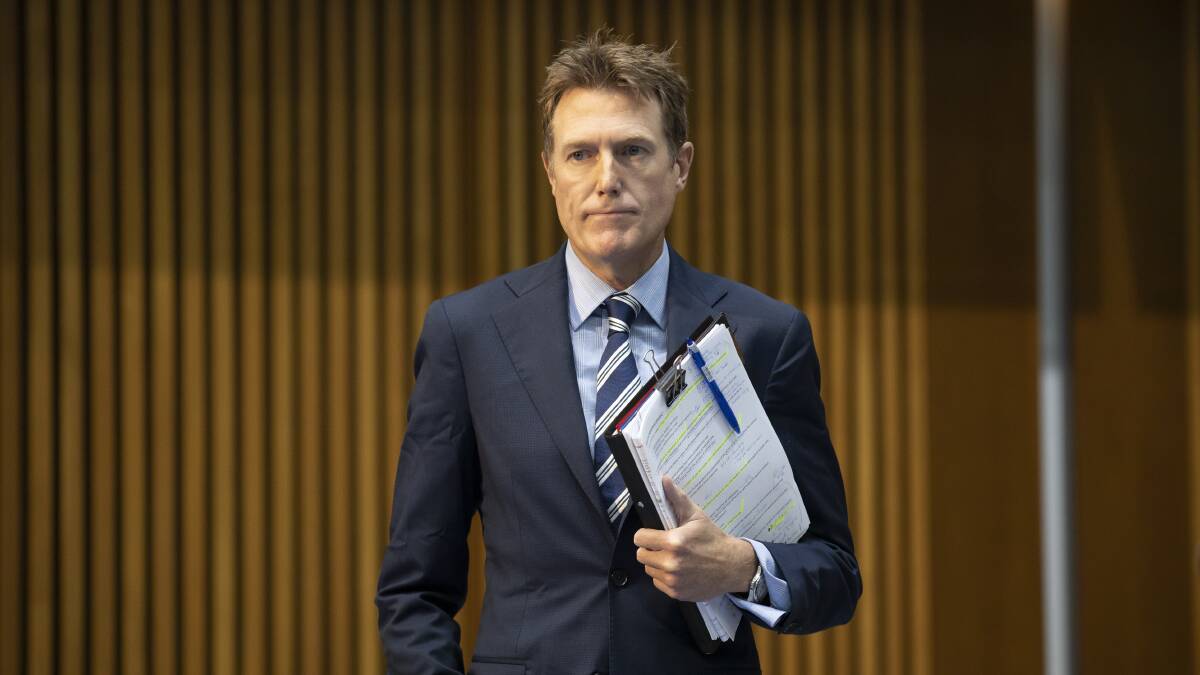
Robodebt was a terror campaign against class mobility. The automated data-matching program cost almost as much to run as it was projected to recoup.
Subscribe now for unlimited access.
or signup to continue reading
It was apparent the Coalition was stealing from the poor within months of Attorney-General Christian Porter (then social services minister) launching the scheme. The government hired debt collectors, made appeals difficult, imposed travel restrictions for those targeted and changed the statute of limitations on debt collection. Despite immediate complaints of false debts, the Coalition refused to change course.
The social media campaign erupted in late 2016, thanks to a few hundred key people consisting of hackers, data scientists, lawyers, policy specialists, union members, artists and activists. The movement centred around notmydebt.com.au, built by Lyndsey Jackson. The hashtag #Robodebt was soon monikered by journalist Ben Eltham and Swinburne University lecturer Belinda Barnet.
The campaign involved people of all political persuasions. Many reverse-engineered their own robodebts to unravel flawed maths behind false debts. Volunteers frequently received emails and phone calls from people distressed by debt collection harassment. People were victimised and criminalised simply for accessing social security.

In early 2017, activists occupied MP Alan Tudge's office and burned debt notices outside Redfern Centrelink. Welfare rights campaigners demanded that media use respectful language, and rehumanised welfare recipients in the process. IT industry veteran Justin Warren analysed policy documents and FOI'd operational manuals. Twitter account @CentrelinkDown analysed dropped Centrelink calls, discovering millions going unanswered. Centrelink whistleblowers took huge personal risks to expose the robodebt program. The government's founding chief executive of the Digital Transformation Agency, the late Paul Shetler, quit in disgust and became a vocal supporter of reform.
The Australian Unemployed Workers' Union, the Australian Council of Social Service and the Community and Public Sector Union were solid allies. Victoria Legal Aid (VLA) saw a 300 per cent spike in calls about robodebts and a 500 per cent increase in website searches for "Centrelink". I often wonder if robodebt would have been shut down sooner if legal aid was properly funded.
The government sparked backlash against robodebt when it attacked freelance journalist Andie Fox, who published her personal account of robodebt. The government responded by leaking her case details to the media. Acting Federal Information and Privacy Commissioner Angelene Falk cleared the government - but as my late friend and fellow digital rights activist Peter Tonoli shrewdly noted, the incident was chilling, both to activism and speech.
Robodebt was bureaucratic violence enabled by lack of government accountability. Its prime purpose was the dogmatic pursuit of a campaign of cruelty against the unemployed, disabled people, single parents, care-givers, casual and gig economy workers.
The Department of Human Services went on the offensive, claiming the program was working as intended. None of the software developers contracted to create the robodebt algorithm took responsibility for the decision to allow purposely flawed accounting to wreak havoc on people's lives.
The grassroots campaign supported thousands of people to challenge robodebts at the Administrative Affairs Tribunal, creating a case backlog and jamming up VLA's workload. Sydney University Emeritus Professor of Law Terry Carney was an AAT member and declared the program illegal. The government promptly removed Carney from the AAT.
The ALP's Senator Murray Watt, Doug Cameron MP and Linda Burney MP, as well as Greens senators Scott Ludlam and Rachel Siewert, were resolute in their opposition to robodebt. Yet despite various ALP members' support for the campaign, the party didn't commit to stopping the program until after losing the 2019 election. Once VLA's High Court case, Amato v Commonwealth of Australia, was under way, the Commonwealth promptly conceded the data averaging method was wholly unlawful. Bill Shorten also announced Gordon Legal would launch a class action on behalf of robodebt victims. The class action has yet to face court.
READ MORE:
After 3.5 years of grassroots and legal activism, the government announced late last Friday that 470,000 debts - worth $721 million - would be waived. But the estimate doesn't include potential compensation under the Compensation for Detriment caused by Defective Administration (CDDA) scheme. CDDA can potentially be accessed by people who have developed health issues as a result of stress or poverty, loss of a home or a car - or even an unexpected funeral as a result of defective administration.
Robodebt was bureaucratic violence enabled by lack of government accountability. Its prime purpose was the dogmatic pursuit of a campaign of cruelty against the unemployed, disabled people, single parents, care-givers, casual and gig economy workers.
But the campaign against robodebt isn't over yet: the Coalition still plans to continue its "income compliance program". No amount of money can compensate for the harm robodebt caused. Returning the stolen $721 million and ensuring adequate compensation is a small first step towards holding the Coalition accountable for the calculated malice they inflicted on the people they were meant to protect.
- Asher Wolf is a freelance journalist, digital rights activist and one of the key original organisers with the grassroots campaign against robodebt.

